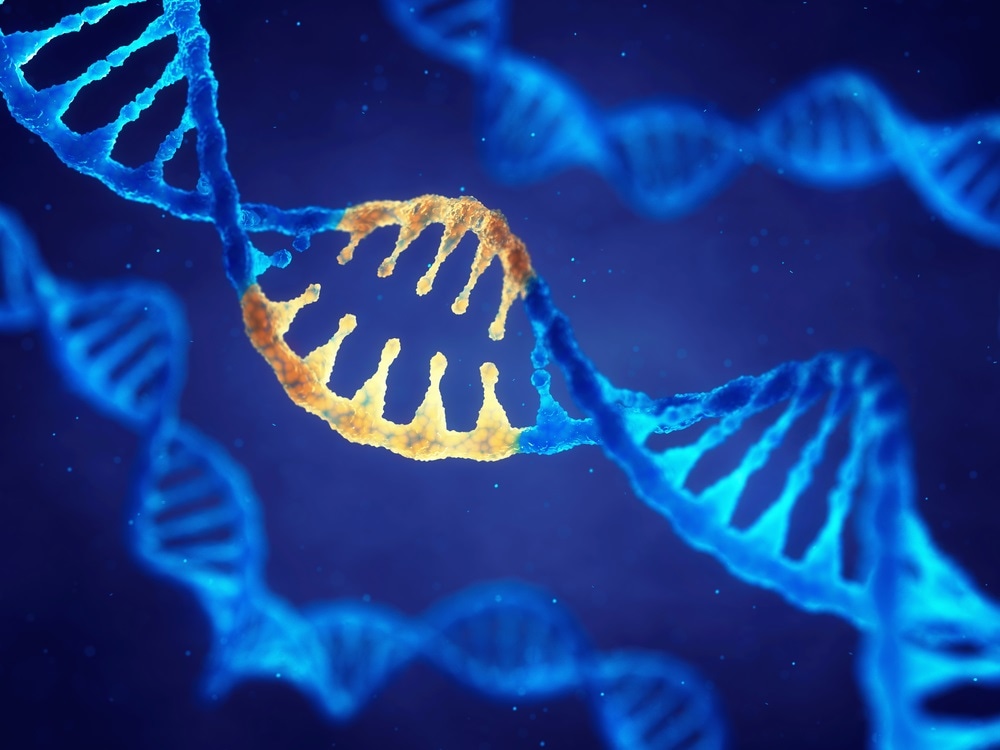Researchers at the University of Manchester have made an important discovery that could help scientists understand the cause of paraplegia and epilepsy in some sufferers.
Their study pointed towards mutations in a gene that codes for an enzyme involved in the synthesis of a key membrane lipid that is particularly enriched in the brain.
The finding could contribute towards the development of treatments for people with the mutations and people with related disorders.
 Image Credit: nobeastsofierce / Shutterstock.com
Image Credit: nobeastsofierce / Shutterstock.com
Hereditary spastic paraplegias
Hereditary spastic paraplegias (HSP) is a general term for a group of hereditary degenerative neurological disorders that affect the upper motor neurons and cause weakness and stiffness in the leg muscles.
In the brain and spinal cord, upper motor neurons send signals to lower motor neurons, which, in turn, send signals to the muscles. In HSP, these upper motor neurons gradually degenerate and muscles fail to receive the correct messages.
This causes progressive spasticity and muscle weakness in the legs. Increasing stiffness in the legs means patients eventually have difficulty walking and, as the disease progresses, they often become wheelchair dependent.
If HSP only affects the lower body, the disease is referred to as uncomplicated or pure, but if other systems in the body are affected, HSP is classified as complex or complicated. The involvement of these systems leads to additional symptoms including ataxia, epilepsy, hearing loss, impaired vision, impaired cognition, and peripheral neuropathy.
Currently, there are no treatments available that can prevent, slow, or reverse HSP and symptoms are managed with medication and physiotherapy.
Several gene mutations have been linked to the development of HSP, but in a substantial number of cases, the underlying cause is unknown.
Researchers discover new gene mutation
As reported in the journal Brain, Siddharth Banka and colleagues in Amsterdam have now established a new genetic cause of complex HSP.
Banka is Clinical Senior Lecturer at The University of Manchester and Consultant Clinical Geneticist at Saint Mary’s Hospital, Manchester University NHS Foundation Trust (MFT). The group he leads uses a combination of genomics, clinical and functional studies to investigate the potential causes of disease in patients with unsolved genetic conditions.
The team performed a genetic analysis of five individuals with spastic paraparesis (partial paralysis of lower limbs) or tetraparesis (complete paralysis of the body from the neck down), epilepsy and progressive cerebral and cerebellar atrophy. Their analysis revealed that complex HSP is caused by mutations in a gene called PCYT2 that make it less active.
PCYT2 encodes an enzyme called phosphoethanolamine cytidylyltransferase (ET), which is used to synthesize a cell membrane lipid called phosphatidylethanolamine. Phosphatidylethanolamine is one of the most abundant membrane lipids in the body and it is particularly enriched in the brain.
The team studied the effects of HSP by comparing zebrafish with normal or reduced PCYT2 activity and cell samples taken from patients who had the disease.
They found that survival rates among zebrafish with normal or reduced PCYT2 activity were significantly higher than among fish with a complete knockout of PCYT2. This led Banka and colleagues to conclude that complete loss of PCYT2 activity is likely to be “incompatible with life in vertebrates.”
This knowledge could lead to treatments
We created mutations in the PCYT2 gene in zebrafish, allowing us to study this disease in more detail. This knowledge will contribute towards the development of treatments for PCYT2 deficiency and other related disorders,”
John McDermott, specialist trainee in clinical genetics at MFT
Collaborators in Amsterdam also identified abnormal biochemical signatures in the fibroblasts of patients who donated blood samples.
“Using patient fibroblasts, we demonstrated that these variants are hypomorphic, result in altered but residual ET protein levels and concomitant reduced enzyme activity,” writes the team.
The researchers hope that these signatures could one day be used as biomarkers to help diagnose patients with the condition.
Combining academic and clinical roles
Banka says that being able to combine his role as an academic researcher and his role as a clinician has been key in making this discovery:
“Saint Mary’s Hospital is one of the leading NHS and internationally recognized large-scale providers of genomic services. Being able to combine my clinical role at the hospital, with my academic research at The University of Manchester, has been crucial to this outcome.”
He says the link between academia and the NHS means the team can translate research from the bench to the bedside, for the benefit of patients.
“The identification of more patients in future will help in better understanding of the effects of HSP,” adds Banka.
The researchers hope that studying the PCYT2 gene will also help researchers understand other types of HSP and other neurodegenerative conditions.
Journal reference:
Vaz, F.M. et al. (2019) Mutations in PCYT2 disrupt etherlipid biosynthesis and cause a complex hereditary spastic paraplegia. Brain. doi.org/10.1093/brain/awz291